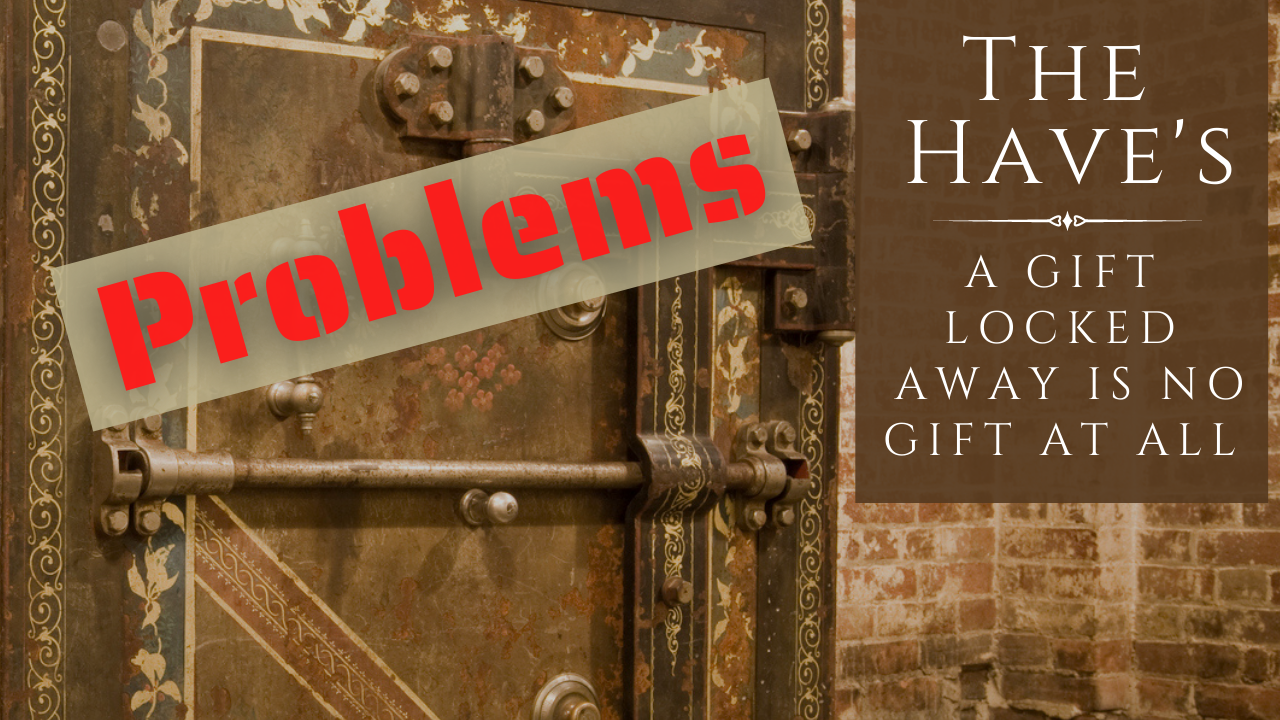
The Have’s are the people named in a Trust document to receive a gift of some type, but they are not receiving it because they are facing a bad Trustee who is not treating the beneficiaries equally, not making required distributions, not giving you information, and using the trust money to hire lawyers to defend themselves.
Let’s discuss the last point first.
Why are bad Trustees allowed to use Trust money to defend their actions?
Well, there’s two reasons really. One, they have the money and you don’t. Whoever has the money will use it for their defense—it’s human nature. Two, there are times when a Trustee is allowed, under California Trust law, to use Trust money to defend themselves. However, and this is an important point, there’s also times when a Trustee is NOT allow to use Trust money to defend themselves. How do you know the difference? A judge will decide that, but only at the very end of the case and only if your case proceeds to trial, which most do not. In other words, it can be very difficult to freeze the Trust assets prior to trial. That means, as a practical matter, the Trustee will probably use Trust money in their defense.
Of course, a good Trustee would not use Trust money to defend themselves unless it was allowed under Trust law. But Have’s aren’t dealing with good Trustees. If they were, there wouldn’t be a problem. Instead, the biggest problem facing Have’s are BAD Trustees. And bad Trustees don’t follow the Trust document, they don’t follow Trust law, and they certainly don’t treat the beneficiaries fairly.
And that is the core of the problem.
The Trustee is the person in charge of the Trust.
They were named to manage the Trust assets. But all too often private people acting as Trustee think they can do whatever they want whenever they want. Nothing could be further from the truth.
Many Have’s come to us and focus on trying to remove the Trustee. If only there was a good Trustee in place, none of the bad stuff would be happening, right? That’s true, but Trustee removal is not so easy. It takes a lot of time, effort, and evidence to remove a Trustee. Afterall the Trust Settlors chose to name this person as Trustee, and most judges do not want to change that without ample evidence of wrongdoing presented at time of trial.
Luckily, Trustee removal is not your only recourse. There are many other legal actions you can take to counteract the effects of a bad Trustee. As part of this series of Trust uses and abuses, we will discuss what action you can take to help neutralize and overcome a bad Trustee if you’re a Have.
Video Transcript
This is Keith Davidson of Albertson and Davidson. I am discussing Trust Abuses and more particularly I am talking about The Haves. These are people who have a gift that is supposed to be coming to you under a trust document. Maybe you’re supposed to receive a specific item like a house or maybe you’re receiving part of the residue and remainder. Whatever it is, your name in the trust, you should be receiving something but you’re not.
The number one problem that people who have a gift under a trust are facing if they’re having problems is a Bad Trustee. You probably have a trustee who doesn’t understand her duties, who isn’t following trust terms and not following trust law, and they probably not treating the beneficiaries equally and that can be a real problem because it can cause a lot of damage. The number one problem if you have a gift coming to you under a trust and you’re not receiving it, is you’re up against a trustee who has an adversary whose well funded. They can use the trust money to defend themselves and you can’t because you don’t have access to the trust money yet. That can be a real problem.
The second problem that people have if you are going to go and attack a bad trustee is the judge in probate court, which is where you have to file your trust lawsuit has a wide range of discretion to determine whether or not to punish the trustee. It is what we call the court of equity and under equitable rules, the judge has wide discretion. They can punish the trustee for acting poorly, they can simply make an order to make things right or they can let the trustee off the hook altogether. It really depends on the individual judge and it depends on the facts of your case and maybe more importantly, it depends on how you present those facts to the judge in order to beat a compelling argument and a compelling case.
So, if you have a gift coming to you under a trust and you’re not able to receive it for some reason and you have maybe no idea what the trust assets even are because the trustee won’t tell you, you are dealing with a bad trustee. That’s the abuse that you’re suffering and in our next video, we’ll discuss what do you do about that abuse.
